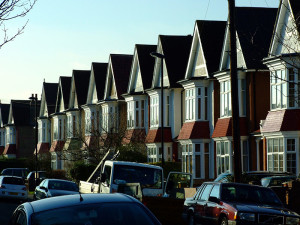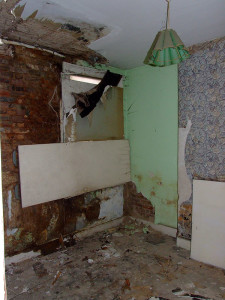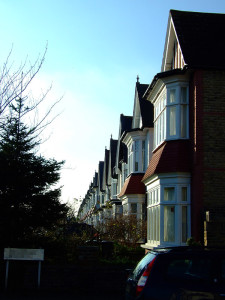 The number of mortgage products available to first time buyers in the UK has doubled in the last three years, while rates have dropped by 1%, new research shows.
The number of mortgage products available to first time buyers in the UK has doubled in the last three years, while rates have dropped by 1%, new research shows.
Since 2012 the number of 95% mortgages available has increased by 448%, according to a study from online comparison site MoneySuperMarket.
But the firm says that first time buyers should always be mindful of the whole cost of a mortgage and not be lured by a headline rate.
Posted in Buy-To-Let Mortgage by .
READ this before making a comment, please :)
All comments are held for moderation. This can take a while and your comment may not be posted at all.
Make sure your name and email is correct.
Speech is free, but this website IS moderated! Please, comment the relevant post and stay on topic, link to your website in the field provided. Thank you!
Jun 15
2
Update on mandatory licencing
In a speech last week, Prime Minister David Cameron called for a new licensing scheme to tackle landlords who “cram” their houses full of illegal immigrants and powers to make it easier for landlords to evict tenants in private rented housing.
There was widespread concern that this meant that a new licensing scheme would be introduced for all landlords in England.
Posted in Important Landlord Law by .
This new deal is the latest punch thrown in the mortgage price war that has been raging for some time. Back in April, HSBC started offering a fixed rate of 1.99% for five years – representing a landmark low for that length of an arrangement.
Posted in Buy-To-Let Finances Mortgage by .
According to Zoopla, Labour’s policies on the housing market, which include giving councils the power to double council tax on homes left empty for a year and giving first-time buyers priority access to new homes, will “make UK property a generally less attractive investment”.
Labour has also pledged to introduce a mansion tax on homes worth more than £2m, although it will also abolish stamp duty for first-time buyers.
Posted in News Real Estate by .
 Damp, poor maintenance and a lack of parking top the list of UK house hunters’ biggest turn-offs, according to new research which is published as the spring house season begins.
Damp, poor maintenance and a lack of parking top the list of UK house hunters’ biggest turn-offs, according to new research which is published as the spring house season begins.
Damp patches staining walls and ceilings are the biggest problem for potential home buyers according to a new survey commissioned by Gocompare home insurance.
It found that 67% of people would be deterred from buying a property which showed signs of damp. Others include poor maintenance, wooden windows, no garden, stone cladding and nasty odours.
Some 60% would be put off by windows being rotten or in a poor state of repair, 55% by no parking, 54% by no garden, and 53% by smells caused by pets, damp, food and cigarettes. Some 53% would also be put off by unfinished building work.
Posted in Investing Real Estate by .
Posted in Commercial Property Conversion Important by .
Of 1,022 locations monitored, some 16% showed an increase in rental value but prime yields fell by an average of 8 basis points and the UK All Property average currently stands at 5.6%, with 35% of locations recording falling yields.
In 2014 total prime rental value growth was 3.8%, up from 2.8% in 2013, with the rate increasing steadily over the last 12 months. The average prime yield recorded a fall of 41 basis points over 2014, compared to 32 bps in 2013, and the combination of continued falls in yields and strengthening rental value growth resulted in capital value growth of 11.8% for 2014.
Posted in Commercial Property Investing Real Estate by .
Labour has pledged to ‘make rent increases more predictable’ by changing the law so three year tenancies are the norm, while the party also wants to place an ‘upper ceiling on any rent increase’ every year.
But Whittaker said: “It’s totally the wrong solution. It ignores the fact there is a direct linkage between the capital value of the property and the rental value.
Posted in Buy-To-Let Interesting Real Estate by .
 In recent months, we’ve asked a number of times what the Conservatives are offering to young voters. In the ConHome manifesto the top priorities in policy terms are Homes, Jobs and Savings, but within each we urged policymakers to focus their attentions particularly on those who are worst off, with the most limited opportunities. Very often in modern Britain those people are the young, and we should address their needs.
In recent months, we’ve asked a number of times what the Conservatives are offering to young voters. In the ConHome manifesto the top priorities in policy terms are Homes, Jobs and Savings, but within each we urged policymakers to focus their attentions particularly on those who are worst off, with the most limited opportunities. Very often in modern Britain those people are the young, and we should address their needs.
It’s a healthy thing to do electorally, as well as socially. Two fallacies plague the debate about generational politics. First, simply pointing to low turnout rates among younger people as a justification for not doing much for them is a self-fulfilling prophecy. Inaction on the part of politicians is only going to reinforce the idea that there’s no point in voting, …
Posted in First Time Buyer Interesting News by .
The government released proposals to grant the FPC this legally enforceable power with respect to the residential market, but said that it would “consult separately” on the buy-to-let market in 2015 [2]. This month, it emerged that this consultation would likely not take place until after the general election [3].
Posted in Bank of England Buy-To-Let Investing by .



